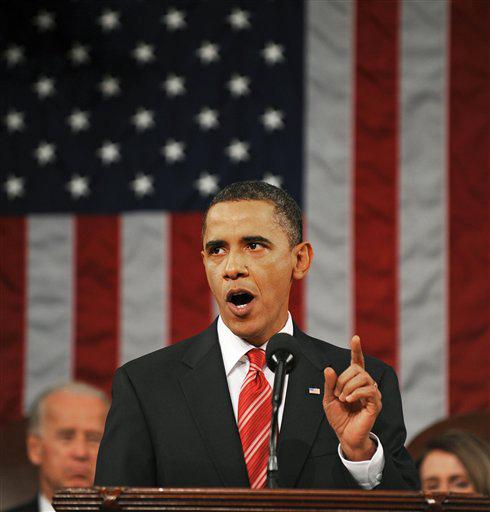
By Margarita Artoglou
Some people did not have time to watch the State of the Union speech live on Tuesday, Jan. 20. I, for one, was workin g, and had to watch a recording online a couple of days later.
The day after the speech, though, my Facebook newsfeed was cluttered with articles about it. I read them because I didn’t think that would really count as a spoiler.
Most of the things I read through social media detailed all of the witty jokes the President made during his speech. While I was amused by Obama’s snarky comments, I realized that most of the articles I saw about the speech almost exclusively covered those sassy moments and neglected to describe the actual issues the President brought up.
There are so many people who did not have the time to watch the speech after work or school and relied on getting their current events updates from friends on social media, which is great, because being able to read a quick article on the state of affairs is better than being completely uninformed.
Except for the fact that most of those quick articles did not summarize anything important.
The popular media’s coverage of the address is not surprising because it is not the first time that political events have been dumbed down or sifted through for the best four-second sound bite. Those who want to stay politically aware find a way to do so, either by watching events or reading comprehensive news stories. Even so, as I was perusing Facebook and seeing the president’s face every other post, it felt like I was getting the gist of what happened.
When I actually sat down to listen to the speech, I realized I hadn’t gotten the main idea at all.
Where were the articles about all of Obama’s accomplishments? They are out there, I am sure, but no one reposts or shares those.
This issue is not confined to the State of the Union address. The majority of current events have been getting boiled down to a few minutes on news channels for a long time. The more recent development is the sharing of events on social media. When a friend shares his or her opinion of a speech or liveblogs a debate, it is easy to give into the temptation of reading it and then consider yourself properly informed.
When something important happens in the world, you can bet it will find its way onto at least one social networking site. However, it is important to remember that there is always more to the story than one friend’s Facebook status, even if it was so long that it required a ‘Read More’ break. A Buzzfeed article usually won’t be a thorough enough update, even if the gifs are hilarious.
These methods are much easier ways to keep up with events. However, it is not the same as being informed. Knowing that President Obama killed it during his speech does not equate to knowledge of how the country is doing.
It takes me back to my high school government class, in which I learned that news channels typically look for the most attention-grabbing stories, because at the end of the day, their first concern is viewership. It is the same for the articles people share on websites — they are designed to entice people to click on the link when they see the headline. While a bulleted list of issues discussed during the State of the Union would have been useful to those who could not fit the whole hour-long speech into their schedules, it would not have been a very popular article.
There is a bigger concern to think about when it comes to media portrayal of politics. In the same government class, we learned about how a four second clip from a campaign speech could overshadow everything else, depending on the media’s portrayal of it. The American public is not always paying close attention to the facts, and that skews the outcome of elections and decisions made by lawmakers.
In the age of social media and instant updates, staying politically aware has never been more important. We need to put effort into not falling into the trap. We need to be conscious about what is going on in our government, even if that means seeking out legitimate news articles rather than just clicking on whatever our Facebook friends have posted.
Sure, we know that our president is pretty cool. At this point, it’s well established that he is sassy and not afraid to embrace it. And while it is still well worth it to mention his clever quips, it would be a real shame for the media (especially the articles circulating on social networking sites) to allow his attitude to be his defining characteristic. By realizing the effect of social media on the way we consume media, we can make a better effort to understand what is really going on in the world around us.
Margarita Artoglou, FCRH ’18, is a communications and media studies major for Queens, NY.









































































































































































































